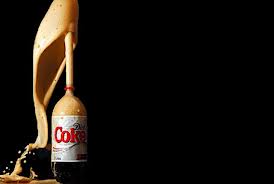An item from Wired, April issue on “Customer misbehaviour” was featured in today’s Cutting Edge, the CIM’s weekly analysis of marketing news. It reminds us of the video involving the misuse of Diet Coke and Mentos mints, which quickly went viral in 2006. It was so successful that Coca-Cola signed up the two video makers to a production contract. The first two video campaigns increased sales of Diet Coke by over 5% while Mentos sales in the US rose by nearly 20%.
Companies are beginning to recognise the power of customer ‘misbehaviour‘, where a product or service may be used in a way not intended by the manufacturer. Customer misbehaviour led to the setting up of eBay Motors and Facebook’s ‘groups’ feature. Facebook describes its approach as ‘watching users misuse what we had given them and building the product that captured what they want to do’. Companies should pay attention to how their customers are misusing products because it provides a cheap source of product development.

This reminded me of my early days working for LIG plc, when on a visit to Jeddah I met my counterpart from Beechams, who was responsible amongst other things for Brylcreem. The brand had pretty close to 100% distribution in just about every conceivable retail outlet in the entire Arabian peninsula, from supermarkets to “hole-in-the-wall” grocers. They widely believed that with this level of penetration they were selling all they possibly could. One year they had some leftover budget, and decided, in spite of the ubiquity of Brylcreem, to advertise it. To save production costs (and time) they re-ran an old ad featuring a bespectacled “scientist” in a white coat, who posed in front of a flip chart illustration of a hair follicle, explaining all the wonderful things that Brylcreem does for your hair. To their great surprise sales, which had been flat for decades, leaped by about 30%. Nobody could understand why, so they did some research to find out. What they discovered was that people had hitherto been using it as a moisturising skin cream – and as a result of the campaign were now also using it on their hair.


There is a similar story about Haier Corporation’s experience with washing machines in rural China – people complained that they clogged when they washed their vegetables in them. I ask students what the Haier marketing team should do about it, and they usually say “Tell customers not to wash vegetables in them”. The correct “Marketing” response of course is to redesign the washing machine.
This blog is written by
Dr Jaafar El-Murad,
Head, Dept of Marketing & Business Strategy, Westminster Business School
Latest posts by Westminster Business School Blog (see all)
- Team Atlas Makes It To The Semi-Finals Of The Universities Business Challenge – The World’s Leading Event For Employability And Enterprise Skills - December 18, 2015
- #LoveFestive Photo Competition – What Does Festive Mean To You? - December 1, 2015
- Business Economics Course Attends Institute Of Fiscal Studies Conference - November 30, 2015
